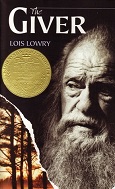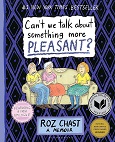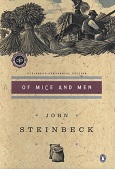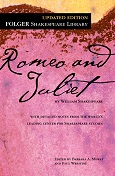The Giver
by Lois Lowry
Given his lifetime assignment at the Ceremony of Twelve, Jonas becomes the receiver of memories shared by only one other in his community and discovers the terrible truth about the society in which he lives.
Can’t We Talk About Something More Pleasant
by Roz Chast
In her first memoir, Roz Chast brings her wit to the topic of aging parents. Spanning the last several years of their lives and told through a mixture of cartoons, family photos, documents, and a narrative, Chast’s memoir is both comfort and comic relief for anyone experiencing the life-altering loss of elderly parents. The themes are universal: adult children accepting a parental role; aging and unstable parents leaving a family home for an institution; dealing with uncomfortable physical intimacies; managing logistics; and hiring strangers to provide the most personal care.
Of Mice and Men
by John Steinbeck
An intimate portrait of two men facing a world marked by petty tyranny, misunderstanding, jealousy, and callousness. But though the scope is narrow, the theme is universal: a friendship and shared dream that make an individual’s existence meaningful.
Winnie the Pooh
by A.A. Milne
When Edward Bear joins Christopher Robin in many forest adventures, he earns the name Winnie-the-Pooh.
Twilight
by Stephanie Meyer
When seventeen-year-old Bella leaves Phoenix to live with her father in Forks, Washington, she meets an exquisitely handsome boy at school for whom she feels an overwhelming attraction and who she comes to realize is not wholly human.
Romeo & Juliet
by William Shakespeare
The play is a tragic love story by William Shakespeare about two young people in Verona from rival families who fall in love despite their families being sworn enemies.
2001: A Space Odyssey
by Arthur C. Clarke
On the moon, an enigma is uncovered. So great are the implications that, for the first time, men are sent deep into our solar system. But before they can reach their destination, things begin to go very wrong.
A Tale of Two Cities
by Charles Dickens
“It was the best of times; it was the worst of times …” With these famous words, Charles Dickens plunges the reader into the French Revolution. From the storming of the Bastille to the relentless drop of the guillotine, Dickens vividly captures the terror and upheaval of that tumultuous period. At the center is the novel’s hero, Sydney Carton, a lazy, alcoholic attorney who, inspired by a woman, makes the supreme sacrifice.







